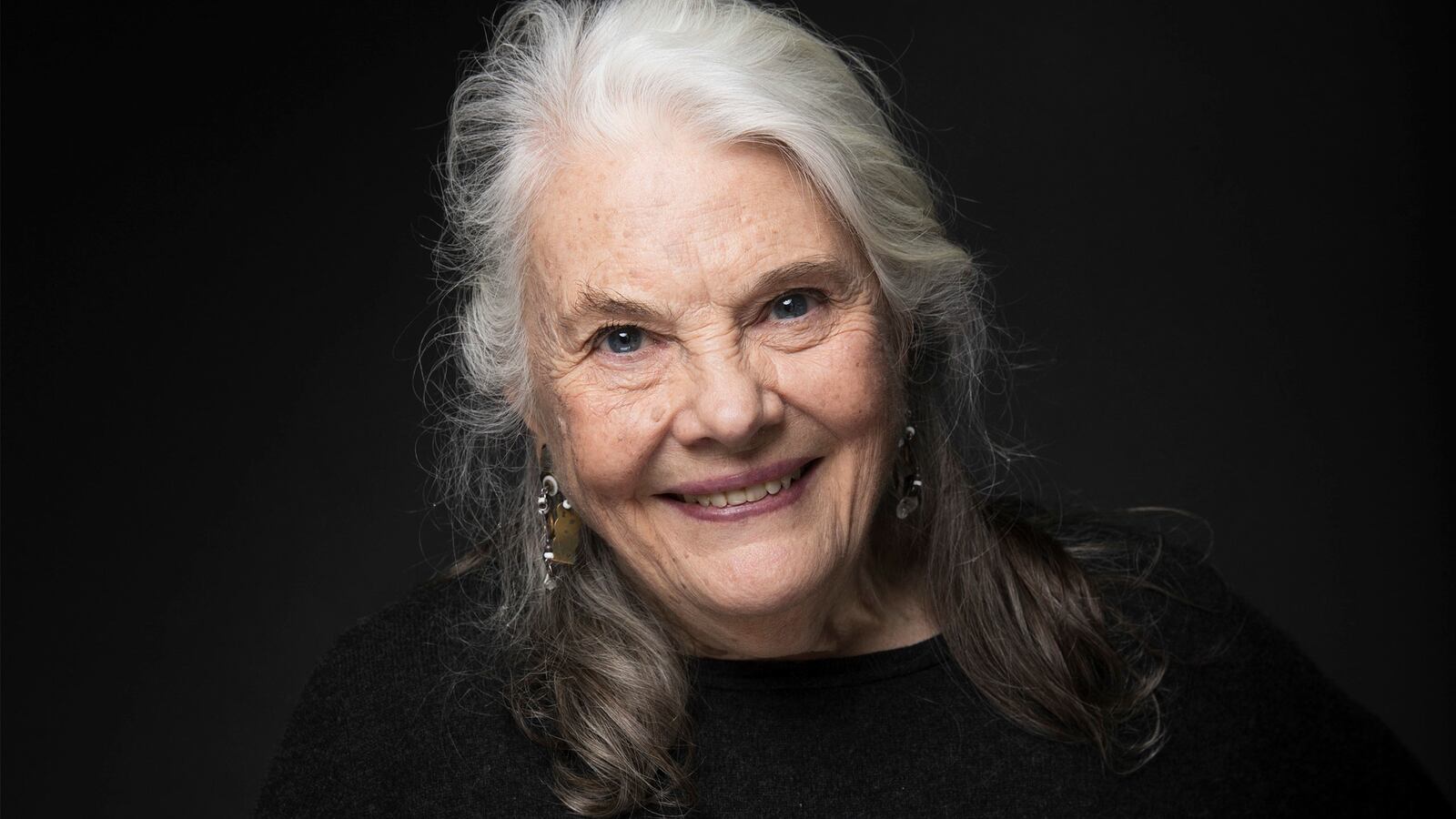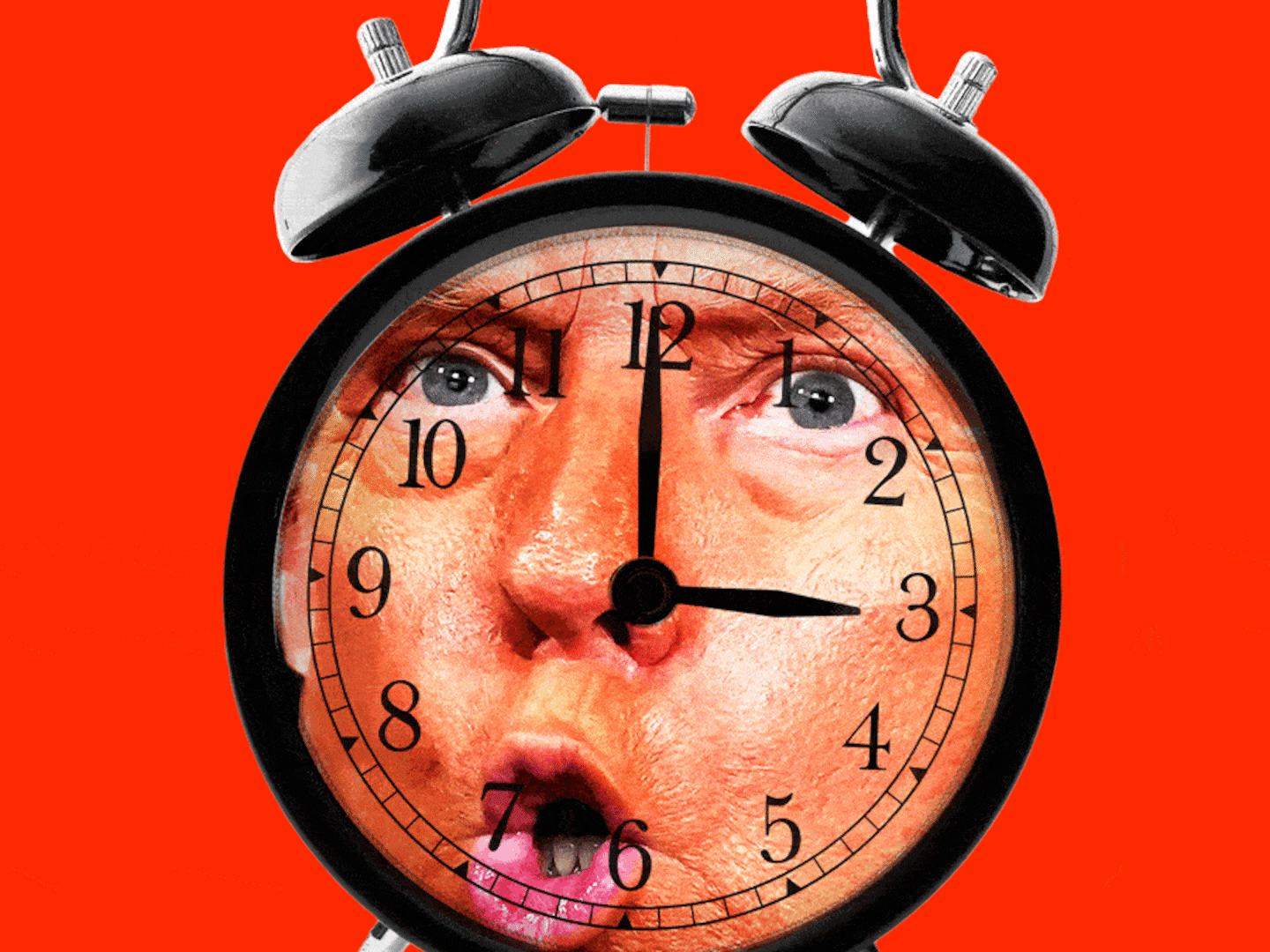PARK CITY, Utah – The It Girl of the Sundance Film Festival is reclined on a couch, finally taking a breath after a relentless day of being whisked around a snowier-than-usual Park City. Because of her performance opposite Jon Hamm and Geena Davis in one this year’s buzziest premieres, she’s being called the breakout star of the festival, I tell her.
“Oh yes? Good for me!” Lois Smith starts cackling, throwing her head back at the incredulity of it all. “I think in our profession that’s what you say if somebody is doing something new. So, yeah...breakout role? Good for me.” She laughs again, setting up her punchline: “And I’m only 17…”
Smith isn’t 17. The actress, who was born in Kansas and grew up in Seattle, is actually 86, and has been working steadily on stage and screen for six decades since her professional debut at age 22 in the 1952 Broadway play Time Out For Ginger. As The New York Times recounted, when Smith made her final exit during the production’s last performance, co-star Melvyn Douglas ad-libbed, “She’s going to be a great actress, that kid.”
Sixty-four years later, after scores of memorable film roles (East of Eden, opposite James Dean), TV appearances (True Blood), and stage work that includes two Tony nominations, Smith is the toast of Park City thanks to her turn in Marjorie Prime, the film adaptation of the Jordan Harrison play that she starred in twice and was written specifically for her.
She plays Marjorie, a widow who is suffering memory loss and grieving the death of her late husband. The film is set in the future, when, in a bit of a sci-fi twist, there are holograms called Primes that are powered by A.I. technology and created to look, sound, and converse like lost loved ones.
They are designed to remedy loneliness and keep fading memories fresh, and are made in the image of the departed at any time in the person’s life that the client wishes. Marjorie chooses to recreate her late husband’s 40s, which is why he’s played by Jon Hamm.
“You wouldn’t think of him being my husband, would you?” Smith says, her voice practically winking. “But he is. Isn’t that fun? I am to be envied.”
How we use technology in the future to deal with death, grief, loneliness, and memory loss is ripe for high-concept exploration, most recently in the “Be Right Back” episode of Black Mirror, which tackled those themes in a similar way to Marjorie Prime. But there’s something quieter and more human about the way the film seems to go about it.
“I’ve never read anything like it,” Smith says. “I felt so blessed to be able to play it. And then play it. And play it…”
She opened the play first in Los Angeles in 2014. Filming on the movie happened next, followed by another run off-Broadway at Playwright’s Horizons in December 2015. Smith estimates that she got back to her Long Island home at around 1 a.m. after wrapping the film shoot, and at 10:30 a.m. was starting rehearsals for the New York production on stage.
“And the whole year had been filled with work, the most interesting kinds one after another,” she says. She nods when I offered the word “relentless”: “But I’m a very fortunate person to have all these lovely things happen.”
In the last two years she returned to the finale of True Blood; shot one of the most memorable guest turns on The Americans, a show brimming with them; shot scenes for Ryan Gosling’s The Nice Guys and Robert De Niro’s The Comedian; and appeared in an episode of The Affair. That, plus two productions of Marjorie Prime and the off-Broadway mounting of John, the new play by Annie Baker.
She gushes about how the role of Marjorie is “witty and full of life.” The conventional wisdom is that roles like that diminish as a women working in show business gets older. “That’s the story, isn’t it?” Smith, the exception to that rule, says. Then, again, gratitude: “I’ve been lucky, haven’t I?”
What is it about this time in her life that’s been so professionally fruitful?
“Well, I’m still walking around. Still have my marbles. Still learn my lines”—she pauses, adding, “Better than most I must say.” After a laugh she quotes Laurence Olivier: “Isn’t it him who said the thing to do is just show up? I’m still able to show up, and I’m showing up.”
Marjorie Prime doesn’t just mark an excellent showcase for Smith’s talents, but also a festival and PR-machine behind it generating the buzz of media attention for her. Maybe because of the role, and maybe because it’s just simply something to latch onto, much of the attention surrounds her age.
Does she find it to be as remarkable as everyone seems to?
“I remember saying probably last week when something came out about it, wondering if my age is really the most interesting thing about me,” she says. “At this point, at least in the press and publicly, that seems to be the most interesting thing about me.”
“After being grumpy about it, I thought, OK, forget it,” she continues. “Yes, maybe it is the most interesting thing about me. Sometimes I want to say, ‘People, listen, may you be so lucky when you’re my age.’ So it’s not exactly pleasant, but it’s not exactly unpleasant either.”
But, like in Marjorie, this all at least provides an occasion to stroll a bit down memory lane.
She recalls that first job with Melvyn Douglas, and moving on from that to shoot her first television show: a live broadcast staging of The Apple Tree. After just two years working in New York, she landed her first film—opposite James Dean in East of Eden, no less. And from then on, while perhaps not becoming a household name in her own right, she worked steadily on stage, film, and television.
“I’ve been able to make my living as an actress ever since, which is not common,” she says. “I think it was Robert Anderson, the playwright, who said, ‘In this business, you probably can’t make a living but you might make a killing.’ Well, I did make a living and I didn’t make a killing. So I feel quite content with that.”






